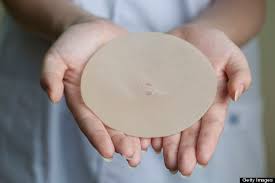
Young women seeking breast implants often ignore a critical aspect of this surgery: they will have these implants in their breasts for years, even decades. What happens to them over time? This is an aspect of breast implant surgery that I feel many surgeons gloss over. What are the long term consequences of having breast implants?
I could make this a very short essay and answer honestly, “we don’t know.” This is true, at least for a particular patient. You see, women do not all respond the same way to implants. In discussing what happens long term, we begin with a simple fact, one that I impress upon all patients at their first consultation. Putting breast implants in anyone is an unnatural thing to do. No one can predict with any precision what will happen to an individual with implants over five, ten, twenty five years, or more. There are just too many variables, many of which we cannot control and some we are probably unaware of. We know more now than we did decades ago but that is a far cry from knowing everything.
Contrary to those who claim implants are terrible, toxic devices that no one should have, most women do quite well and are very happy with them. This is not to ignore or disenfranchise those who have problems; it is simply the truth as I can attest over 28 years of doing this surgery. Does this mean they are perfect and no one has problems with them? Absolutely not and we need to be sure women who have problems are properly evaluated and provided the help they need. We need to continue to study implants and strive to improve them.
We know implants are not totally inert. This means the body recognizes their presence as something foreign and may mount an immune response to them. This is not necessarily harmful but can create some problems years down the road. We also know that bacteria naturally found in the skin, which are usually not harmful to us, can be implanted with the implant and form a layer called a biofilm on the surface of the implant or the scar tissue around the implant. Biofilms and the immune response to implants are thought to stimulate a very low grade, chronic inflammatory response which, in time, can lead to several of the problems associated with implants. These include contracture of the fibrous capsule around the implant causing the breast to feel unnaturally hard, deposition of calcium on the implants and capsule, and even a very rare form of lymphoma of the breast that has been seen in patients who have had textured breast implants.

I have removed implants that were in for twenty or more years and looked like they did the day they went in. I have also seen implants that were in for just a few years that were extensively calcified; in one case, the capsule resembled a porcelain bowl.
All breasts change over time, with or without implants. Implanted breasts are larger and heavier, therefore gravity may affect them more, leading to greater sagging with age. In some women, the capsule around the implants remains exceedingly thin and the breasts may stretch over time. This can lead the implants to drop too low in the breast or slide sideways too far on the chest, creating an odd look in certain positions. The breast tissue over the implants may get thinner with time, making the implants more visible and palpable.
Breasts that have been implanted, even briefly, will not necessarily return to their former selves when the implants are removed. The longer the implants are in and the larger they are, the more the changes in the breasts over time.
Every woman getting breast implants should expect a high likelihood that they will need at least one more operation someday. This may be to remove the implants altogether. It may be to exchange them for something new and better or correct a problem. Implants are not expected to last a lifetime. Later surgery may be more involved than the initial surgery and patients will have to pay for this as insurance regards such surgery as cosmetic, even if there is a problem related to the implants. Contrary to a popular belief, which some surgeons encourage, there is no recommendation on the part of implant manufacturers or the FDA that implants be routinely replaced ever ten or fifteen years.

I try to advise young women against seeking very large implants because of the future problems these might create for them. All of the potential problems with implants are compounded when very large implants are used. Patients with very large implants should not expect that their breasts will ever look natural if these are removed later. Most of them will need a breast lift, which is extensive surgery and leaves extensive scars on the breasts. Surgery on very large breasts is difficult and fraught with risk of failure or less than ideal results.
Having breast implants opens up many possible future scenarios which would not occur without this surgery. Women have to know and accept this. Breast implant surgery produces some irreversible changes in the breasts and creates the possibility of problems years down the road. If your surgeon is not informing you about this, you need to find another surgeon.
All of this is not to dissuade those interested in breast implants. It is to inform women of what I believe they need to know to make an informed decision about implants so when they have the surgery, there will be as few surprises down the road as possible.





